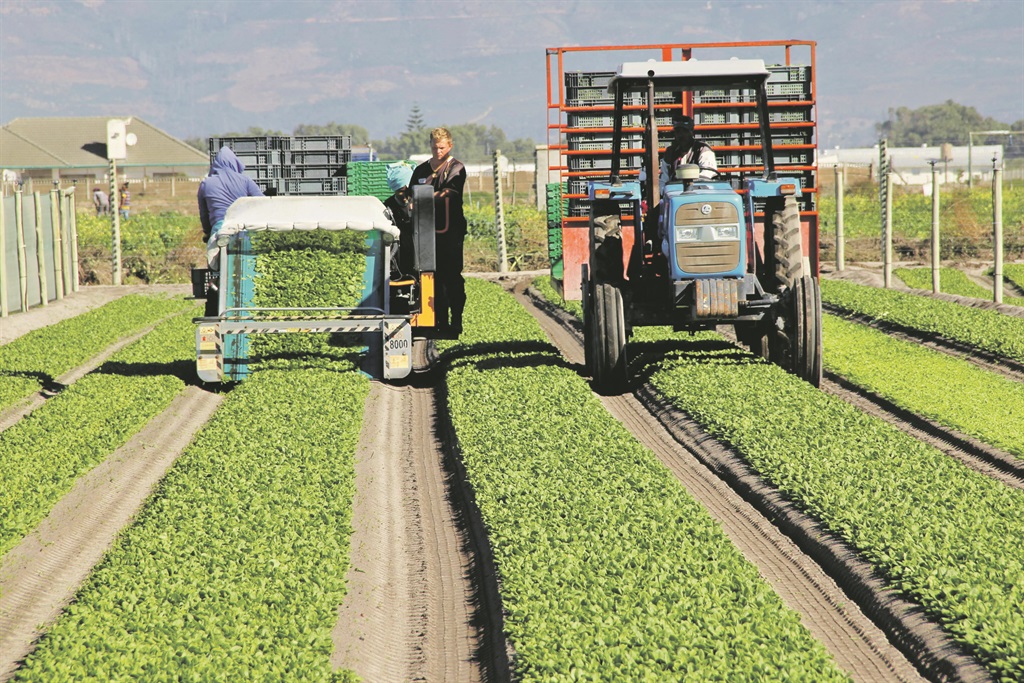Artificial intelligence and the internet of things are making it possible for farmers to make the agricultural sector more sustainable – and our food more nutritious, writes Johan van der Merwe
If you have ever had a veggie garden, chances are you have had variable success due to any number of factors, from the amount of sun your veggie patch gets, to the weeds that take over during your holidays.
Chances are, you also realised just how difficult it is to keep your vegetables alive during a drought.
For many farmers in the Western Cape, the dreadful thought that the taps would run dry earlier this year became a reality, but us city folk still had access to all our usual food stuffs, though we did pay a little more than usual for produce such as meat, onions and potatoes.
The golden ticket for commercial farmers trying to mitigate these “veggie patch” challenges is their ability to deal with risks through good, timeous decisions that are aided by technology.
Some farmers have chosen to use technology that limits or even nullifies the influence of nature, much like the massive indoor hydroponic farms in China and Europe that you see online.
Other farmers, like the followers of the hugelkultur principles or organic farmers, have chosen to put systems and technologies in place that allow nature to be almost completely in control of the production cycle.
These are the two extremes of agriculture and the distance between them will possibly grow larger in future, but in between these extremes are the businesses that produce more than 90% of the food we consume daily – the average South African commercial farmer.
The recent drought, which is not yet over, could have been much worse as far as food security goes in the Western Cape, but the resilience of farmers ensured that we wanted for nothing.
Local farmers vary in the degree of technology they apply, but, ultimately, the long-term sustainability and current realities are the drivers of their decisions and so the farmers were well prepared to deal with the drought.
Mitigating the drought
In the Western Cape some farmers using irrigation had as little as 50% of their allotted quota for water over the past summer.
Apart from implementing water-saving irrigation systems like drip irrigation, they also started using soil moisture probes, which collect hourly data on the amount of moisture in the soil.
From this, the farmers could determine the rate at which their plants used moisture, exactly when irrigation was needed and how much to irrigate at a time.
Though farmers used much less than the optimal amount of water to reach the full production potential of their crops – in some cases only half – the production losses in most of the irrigated commodities, such as grapes, deciduous fruit and vegetables, were only down by between 10% and 20%, and 30% in the worst cases.
The information gathered from the example above as well as other sources of data collection, is the crux of precision farming, and ever more farmers are making use of the internet of things, a network where all the machines on the farm are interconnected, collecting data as they go and performing tasks informed by algorithms derived from processing this data.
From data to decisions
Aerobotics, a Cape Town-based company, is one of a few companies collecting and processing this data on behalf of farmers.
By developing intricate algorithms from this data, Aerobotics is able to enable machine learning, or artificial intelligence (AI).
James Paterson, co-founder and CEO of Aerobotics, says: “Once the first machine has learnt what a tree looks like, every other machine in the network immediately has the same knowledge. This can then be extrapolated to identify early signs of pest and disease problems, growth problems or signs of stress in individual trees, enabling farmers to make better decisions more timeously, increase yield and quality of produce, and increase overall health of their trees or plants, decreasing the need for chemical intervention.
“In the same way, Blue River Technology in the US has developed AI that can distinguish between weeds and a soya plant. Cameras are installed on sprayers and, as it moves through a field of soya, often driverless and guided by GPS, the AI component identifies the weeds and herbicide is applied only to the weeds. This reduces the amount of chemical used, and ensures higher yields because there is less competition from weeds and the produce is healthier,” says Paterson.
“These are just two examples of how the collection of data enables AI to work and puts the farmer in a position to produce healthier food with less inputs, making the whole of the agricultural system more sustainable.”
The beauty of agriculture is that the more water and soil health is improved, the higher the quality and nutritious value of the product will be.
AI makes this progress possible and consumers, thanks to these advances, are already eating more nutritious food that is produced more efficiently than it was two decades ago, and this trend is set to continue.
. This is the first in a series of features about the science of food security and climate change, and is made possible with the support of the African Academy of Sciences
TELL YOUR STORY
You, our readers, are the most important part of the Our Land project. We would like you to tell us your stories so that we can share them across our partner network
Email us on: ourland@citypress.co.za




 Publications
Publications
 Partners
Partners









